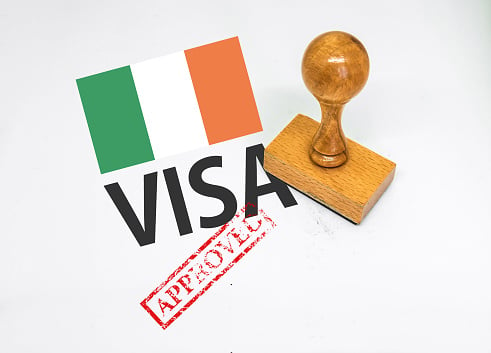
When demand exceeds supply, like it does in the IT skills market right now, it makes sense to cast your net as wide as possible when recruiting. Once you start looking beyond the European Union, you will need to deal with the visa system in order to bring candidates to work in Ireland. This blog post will guide you to the different visa options available, and how to apply them so you’re reaching the best possible talent.
In our experience, many small or medium-sized businesses that don’t have a dedicated HR function, think that Ireland’s visa system is hard to navigate. They might see a lot of technical terms on various government websites and the process can seem intimidating. As a result, they often eliminate non-EU candidates as an option when hiring for developer or technical roles.
No limits
But that’s a completely unnecessary restriction to place on themselves at a time when lots of companies are having difficulty filling even relatively basic IT helpdesk roles despite offering attractive packages. Because here’s the big secret: the system is actually a lot less difficult once you know a few simple rules.
The first preconception to address is that obtaining a visa for a national hailing from outside the European Economic Area is a time-consuming process. (The Department of Justice and Equality publishes a list of all nationalities that need a visa to travel to Ireland.)
Got the time
In reality, the typical outcome when working through the visa system is a three-to-four-week wait. If we compare that to hiring a person who’s already working for another company in Ireland, they’ll probably have to serve a notice period between four and six weeks anyway. So from that standpoint, there’s no disadvantage to employers who source a candidate through the visa route. The risk of a hire getting a counter-offer from another company is also very high in today’s market, so that’s another argument in favour of opening up the pool of potential recruits as wide as possible.
Secondly, there’s no risk of people who currently hold a visa being delayed entry if they travel outside Ireland. Since May 2019, the Government abolished re-entry visas. In practice, this means any nationals who need a visa and who hold a valid IRP (Irish residence permit) or GNIB card won’t need a re-entry visa to travel to Ireland.
Permission to land
When a person has been approved to stay in Ireland, their passport gets a stamp. Each type of stamp denotes a specific permission, including activities they can and can’t do in Ireland, and the time period they are allowed to stay. (More details about stamps, permissions and conditions are available at this page.)
Some of the permissions are standard: a person with stamps 4, 5, or 6 can generally work fulltime no matter what their country of origin is. The main difference between the three types is the amount of time they can stay in Ireland.
School’s out
Recent graduates are an interesting case from the employer’s perspective. Some people come to Ireland to complete their degree and then apply for a stamp 1G. This stamp is granted on a one- or two-year basis and it allows graduates to work for a maximum of 40 hours a week. Holders of a 1G won’t need sponsorship for the initial term of their stay but may need to do so after their visa expires. This is a very useful route for companies to recruit high-quality candidates. If the role allows for some flexibility, another possible option is to consider students with a Stamp 2. While they can only work 20 hours a week during their college term, this increases to 40 hours outside of that time. If your business requires part time staff, these candidates can be an excellent resource.
Certain key roles may fall into the critical skills list, and this speeds up the application process even further. Anyone who would earn more than €60,000 in basic salary automatically qualifies for this process. For roles paying between €30,000 and €60,000, there’s a broad selection of ICT roles that fall into the category (the full list is at the Department of Business, Enterprise and Innovation website). Employers just have to supply the contract job offer, the title of the role to verify it’s on the critical skills list, along with starting salary. In our experience, this is a very smooth process.
SureSkills has placed people from India, Singapore and Russia with various clients, and all have worked out extremely well in their roles. At a time when the market is so buoyant for people with technical skills, no company can afford to exclude potential recruits. With the right partner to guide them, the visa process becomes simpler still, and can unearth high-quality candidates.


